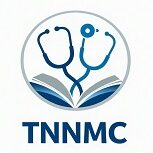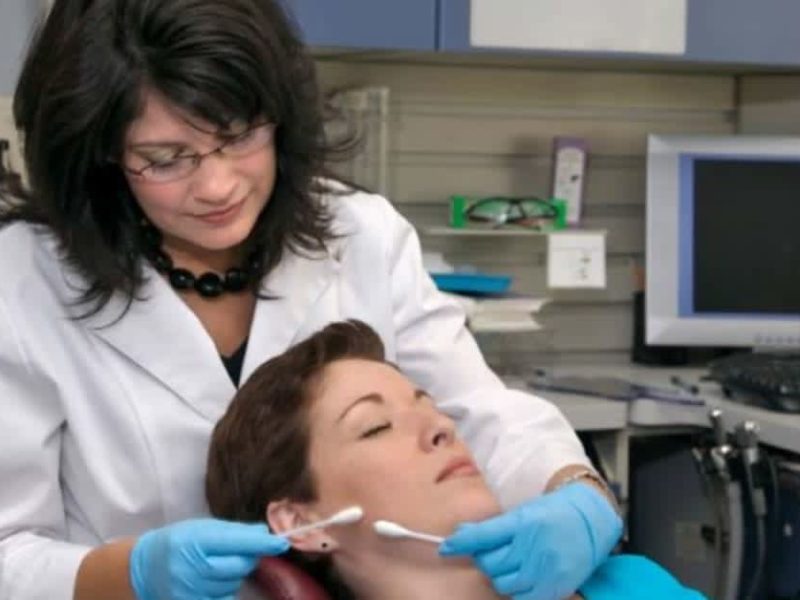Want a healthcare career that promises exceptional growth? The Clinical Nurse Specialist field will grow by an impressive 38% between 2022 and 2032.
This advanced nursing role provides more than job security. Clinical Nurse Specialists make an average of $100,392 annually and can earn up to $140,000 with bonuses and benefits. These specialized nurses work with great independence—they can prescribe medications in 19 states.
Registered nurses who want to advance their careers or healthcare professionals learning new paths should know how to become a Clinical Nurse Specialist. The experience takes about two years to complete and requires a master’s degree. The National Association for Clinical Nurse Specialists states that a Doctor of Nursing Practice (DNP) will be the minimum requirement by 2030.
This piece outlines the exact steps to become a Clinical Nurse Specialist, from education requirements to certification processes. Your path to this rewarding career starts here!

Understanding Clinical Nurse Specialist Requirements
Here are the requirements you need to meet to become a Clinical Nurse Specialist (CNS). Let’s take a closer look at these requirements that include specific educational qualifications, state licensing, and core competencies.
Core Qualifications and Prerequisites
You need graduate-level education to practice as a CNS. A master’s or doctoral degree from an accredited nursing program is mandatory. On top of that, it takes at least 500 supervised clinical hours in a CNS role.
These core competencies need to be mastered:
- Expert clinical practice and direct patient care
- Educational leadership and staff development
- Research implementation and evaluation
- Clinical consultation
- Professional leadership
State Licensing Requirements
State requirements vary by a lot across the country. In 23 states, CNSs have full-practice authority. Beyond that, 19 states allow CNSs to prescribe medications, though some need extra education.
Required Skills and Competencies
CNSs must show advanced clinical expertise in diagnosis and intervention within their chosen specialty. These skills are vital:
- Advanced clinical knowledge in physiology, pathophysiology, and pharmacology
- Problem-solving and communication abilities
- Team leadership and management capabilities
- Research and evidence-based practice implementation
Clinical nurse specialists work to improve nursing care quality and patient outcomes. They must keep their certification current through continuing education and stay up to date with healthcare developments.
Completing Your Clinical Nurse Specialist Education
The trip to becoming a Clinical Nurse Specialist starts with good education planning. A strong foundation through undergraduate studies shapes our original path.
Bachelor’s Degree Requirements
A Bachelor of Science in Nursing (BSN) from an accredited institution marks the starting point. Students need to maintain at least a 3.0 GPA to qualify for advanced programs. The choice of an accredited program is significant because most MSN programs accept students only from CCNE or ACEN-accredited institutions.
Master’s Program Selection Guide
The selection of an MSN program depends on several vital factors:
- Program accreditation status
- Clinical placement opportunities
- Program costs (generally between $500-$1000 per credit hour)
- Flexibility of schedule (online vs. hybrid options)
- Specialization options available
MSN-level programs need about 40 credits and take 2-3 years to finish. Students must complete 500 clinical hours under qualified preceptors after enrollment.
Doctoral Program Considerations
The National Association of Clinical Nurse Specialists suggests DNP as an entry-level degree by 2030, so an MSN might not be enough. DNP programs need 75 credit hours and take 3-4 years to complete. Smart planning of our educational pathway keeps this future requirement in mind.
The investment in education will be substantial without doubt. Many schools now offer both online and campus-based options that fit working professionals’ schedules. Doctoral programs provide extra preparation for complex health conditions and expert clinical practice, which makes them worth considering over MSN paths.
Choosing Your CNS Specialization
Choosing a CNS specialization is a vital decision that shapes our career path. Right now, several compelling career directions await us.
Popular Specialization Options
Adult health/gerontology leads the pack as more than 75% of CNSs choose this direction. The field offers other exciting specialties:
- Pediatrics (9% of CNSs)
- Family practice (5% of CNSs)
- Psychiatric/mental health (4% of CNSs)
- Women’s health/gender-specific (4% of CNSs)
- Neonatal care (3% of CNSs)
Factors to Select Your Path
Your choice should line up with both personal interests and professional goals. Studies reveal that 75% of specialist nurses value chances to take on new tasks and responsibilities. The data also shows 72% place high value on intellectual challenges that come with their specialty choice.
Market Demand Analysis
CNS career prospects look bright with growth projected at 31% through 2022. Salaries range from $65,000 to over $110,000, based on specialty and location.
Acute care offers roles where patients deal with acute, chronic, or complex illnesses. The profession keeps growing steadily. Nearly 90,000 CNSs practice in the United States today. Many professionals serve as providers while they help improve their organizations.
Obtaining CNS Certification
Clinical Nurse Specialists need proper certification to establish their professional credibility. Let’s look at how the certification process works and what it takes to meet industry standards.
National Certification Process
The American Nurses Credentialing Center (ANCC) and AACN Certification Corporation are the main certification bodies for CNSs. We have several certification paths available:
- ACCNS-Neonatal
- ACCNS-Pediatric
- ACCNS-Adult-Gerontology
- Adult Health CNS
- Psychiatric-Mental Health CNS
You’ll need 500 supervised clinical hours and a valid RN license to qualify for certification. The next step involves passing a complete examination with 200 multiple-choice questions.
State-Specific Requirements
Requirements change by a lot between states across the United States. CNSs can get state licensure or certification in 21 jurisdictions. You need to provide proof of your:
- Education credentials
- Clinical experience
- Examination results
- Current RN licensure
Maintaining Your Credentials
The certification journey continues after you get your initial credentials. ANCC requires renewal every five years. The requirements include:
- Completion of 150 CE Points
- Minimum of 75 points in Category I
- 25 hours specifically in pharmacology
- 1,000 practice hours during the five-year certification period
Adult-Gerontology certification candidates must keep their license valid and complete advanced coursework in physiology, pharmacology, and health assessment. Your steadfast dedication to certification shows excellence and helps you stay current with healthcare advances.
Conclusion
Clinical Nurse Specialist careers are a great way to advance in healthcare. Our detailed analysis shows this role combines clinical expertise, leadership, and specialized knowledge that provides excellent compensation and job security.
The path starts with education and progresses through certification requirements, specialization choices, and credential maintenance. Each step guides you toward a career where you can create important effects on patient care and earn competitive salaries.
Note that healthcare keeps evolving, and CNS requirements will likely move toward DNP-level education by 2030. This field needs dedication to continuous learning and professional growth. With this knowledge and understanding of the requirements, you can pursue this rewarding career path in advanced practice nursing.
FAQs
Q1. What qualifications are required to become a Clinical Nurse Specialist?
To become a Clinical Nurse Specialist, you need a master’s or doctoral degree in nursing from an accredited program, at least 500 supervised clinical hours, and certification in a specialty area. You must also maintain an active RN license and demonstrate advanced clinical expertise in your chosen field.
Q2. How long does it take to become a Clinical Nurse Specialist?
Typically, it takes about 6-8 years to become a Clinical Nurse Specialist. This includes 4 years for a Bachelor of Science in Nursing (BSN), 2-3 years for a Master of Science in Nursing (MSN), and additional time for gaining clinical experience and obtaining certification.
Q3. What are the main responsibilities of a Clinical Nurse Specialist?
Clinical Nurse Specialists have diverse responsibilities across five domains: expert clinical practice, education, research, consultation, and leadership. They provide direct patient care, implement evidence-based practices, educate staff, conduct research, and work to improve overall healthcare quality within their specialty area.
Q4. What specializations are available for Clinical Nurse Specialists?
Clinical Nurse Specialists can choose from various specializations, including adult health/gerontology (the most popular), pediatrics, family practice, psychiatric/mental health, women’s health, and neonatal care. The choice of specialization should align with personal interests and market demand.
Q5. How do Clinical Nurse Specialists maintain their certification?
To maintain certification, Clinical Nurse Specialists must renew their credentials every five years. This typically involves completing 150 continuing education points (with specific requirements in different categories), maintaining an active RN license, and accumulating a minimum of 1,000 practice hours during the five-year certification period.



